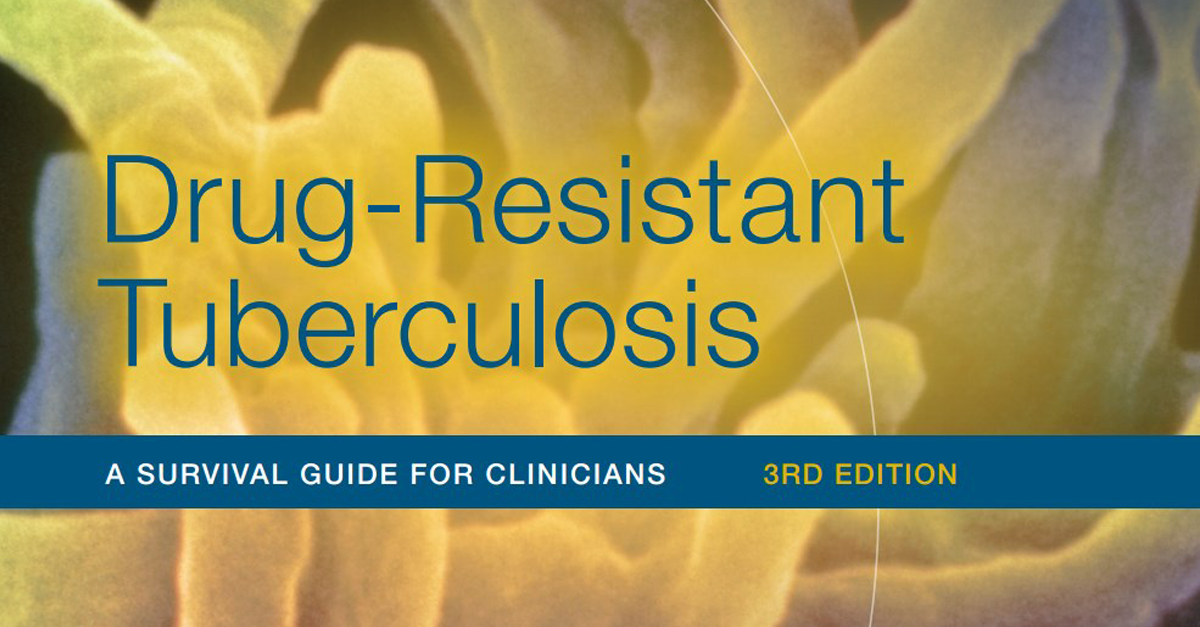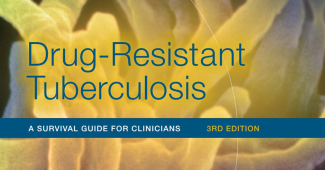Drug-Resistant TB: A Survival Guide for Clinicians, 3rd edition
 The third edition of Drug-Resistant TB: A Survival Guide for Clinicians was released this week by the Curry International Tuberculosis Center (CITC) and the Tuberculosis Control Branch of the California Department of Public Health. The comprehensive guide, geared toward clinicians who participate in the management of patients with drug-resistant TB, contains extensive tools and templates covering the full spectrum of concerns and questions, from basic epidemiology and diagnosis, to data outcomes from newer drug regimens.
The third edition of Drug-Resistant TB: A Survival Guide for Clinicians was released this week by the Curry International Tuberculosis Center (CITC) and the Tuberculosis Control Branch of the California Department of Public Health. The comprehensive guide, geared toward clinicians who participate in the management of patients with drug-resistant TB, contains extensive tools and templates covering the full spectrum of concerns and questions, from basic epidemiology and diagnosis, to data outcomes from newer drug regimens.
The new edition includes information on migrant patients with drug-resistant TB in the chapter entitled, “Monitoring and Case Management.” MCN’s Deliana Garcia, who along Jillian Hopewell provided comments as a reviewer of the chapter, emphasizes that any clinician’s approach to drug-resistant TB should encompass minority and underserved patients who don’t fit the typical patient mold.
“It is gratifying to see Continuity of Care explicitly discussed in the Survival Guide,” said Garcia. “Through our work in Health Network we have seen first hand the importance of case managers that establish and value good relationships with patients and providers. This Survival Guide is comprehensive and is a great tool to help those planning care systems or providing care directly.”
For mobile TB patients including deportees, parolees, or inmates moving to new facilities, the new edition recommends enrollment in Health Network’s TBNet, the innovative and cost-effective model of bridge case management for mobile TB patients developed by Migrant Clinicians Network: “For a TB patient who is likely to move, enrollment in TBNet is strongly encouraged to ensure interruptions in treatment are minimized, appropriate follow-up and transfer of care occurs, and outcomes are reported.” In a section on medical history and physical evaluation of a new TB patient, the guide includes migration as an important element of taking the patient’s social history, along with lifestyle and habits, local family and social support network, employment, housing history, travel, prior substance use, and incarceration.
The entire guide is viewable online. Visit the CITC website to purchase a printed book or read more about the new edition’s updates.
Like what you see? Amplify our collective voice with a contribution.
Return to the main blog page or sign up for blog updates here.
- Log in to post comments






